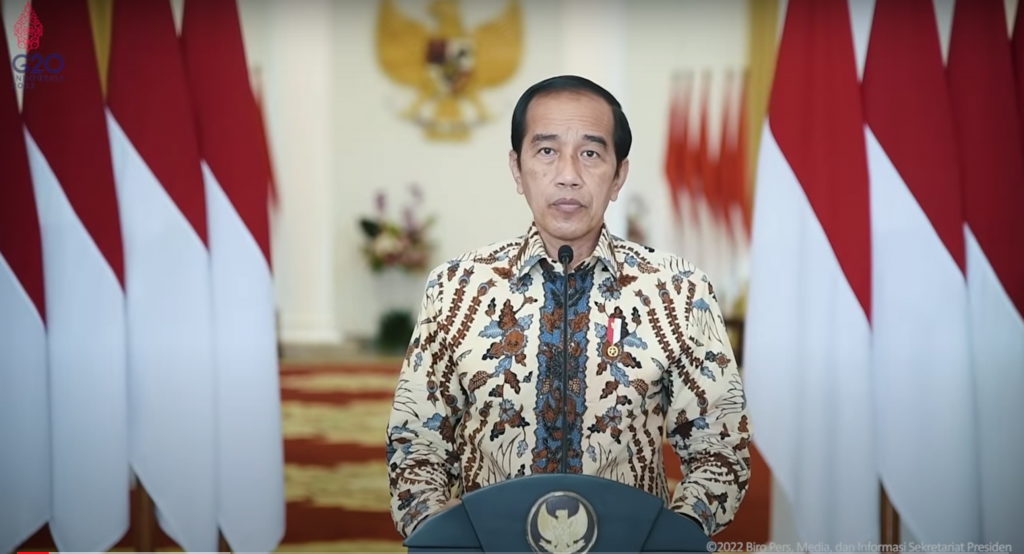
Source: Presidential Secretariat https://youtu.be/gN2Yli9UZIA
Jakarta – President Joko Widodo said that the world still faces challenges in transitioning to clean energy, namely the unequal access to clean and sustainable energy, funding and research and technology support to do so. This was conveyed in the opening of the S20 High Level Policy Webinar on Just Energy Transition, from the Bogor Presidential Palace, Thursday (17/3).
“Each country has different challenges and needs in transforming their energy system. The energy transition is not only about changing the use and use of fossil fuels to renewable energy, but involves very, very complex aspects, from science and technology to social, economic and environmental aspects,” said President Jokowi.
S20 or Science 20 is one of the engagement groups at the G20 forum with the science community. According to the president, the energy transition will change many things and requires the right strategies and mechanisms so that a fair and equitable low-carbon energy transition can be carried out properly.
“I see that there are three major challenges in the energy transition that need our attention. First, related to access to clean energy. … The second challenge is related to funding issues. The transition process requires very large funds, the energy transition requires new projects, which means new investments are also required. Therefore, it is necessary to explore the right financing mechanism in order to create an economy, competitive prices, and not burden the community, he said.
He continued that the third challenge was the importance of research and technology support and the need for superior human resources to support the energy transition.
President Jokowi also reminded G20 countries that “we hope that they can bridge and encourage developing and advanced countries to join the G20 to accelerate the energy transition process, strengthen a just and sustainable global energy system, in a global agreement.”
ADB President Masatsugu Asakawa, agreed that substantial resources need to be deployed to make the transition that should also need to be just and inclusive.
“Let me highlight three key ways that we can accomplish this. First, we urgently need to scale up support for energy transition, using innovative approaches. Climate finance will play a big role here, and ADB is stepping up to this challenge. Last year, we elevated our ambition to provide $100 billion in cumulative climate finance between 2019 and 2030,” he said.
Asakawa added that the second thing needed “is to join together to make a clear and steadfast commitment to a just energy transition. ADB’s new Energy Policy articulates this commitment. It reflects our decision to withdraw from coal financing and to ensure access to affordable, sustainable, and modern energy for all.”
He said that the third key way in our efforts on just energy transition is to take into account unique challenges of each developing member country in transforming their energy systems. (nsh)














